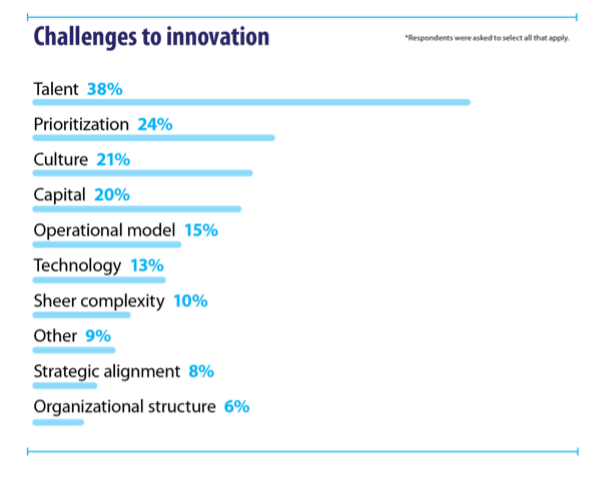When it comes to winning in this new era for business, CEOs across virtually every industry in every part of the nation agree on two things: Becoming a more digitally sophisticated enterprise is essential, and they are struggling to make it happen.
Those are two of the key takeaways from a new survey of CEOs conducted by Chief Executive in May 2021, as part of a new initiative to help the nation’s C-Suites become better digital leaders. When it comes to becoming a more digitally innovative company, our research found 70 percent of CEOs saying their organization is in full swing with various stages of digitalization initiatives.
Yet, nearly half of the CEOs polled (47 percent) told us that when it comes to leading a digitally innovative company, they either feel like they’re “hanging in there” or are simply “out of their depth”.

Some 36 percent report being deeply committed to innovation, with a strategy and plan in place, and 34 percent say they’re on the innovation journey, with initiatives planned across the organization. Nearly all others (28 percent) say things are also in progress for them on that front, but that initiatives are only taking place in certain areas of the organization.
Only 2 percent of the 239 CEOs surveyed say they have not yet started or are working on getting started but need help.
The effort is essential. When asked to rate the degree to which innovation drives every action at their company, CEOs we polled gave it a 6.9 out of 10 on our 10-point scale.
Among the challenges to innovation: talent (38 percent), prioritization (24 percent) and culture (21 percent) topped the list.
It is not surprising to find companies, particularly traditional companies, struggling with not having the right talent, time or culture to drive innovation. Or, if they do have the talent that can help digital innovation efforts, they struggle to find ways to best empower them to boldly innovate.
 Daniel Slater, Worldwide Lead, Culture of Innovation, AWS—and a partner in this research—says that organizations often find decision-making harder as a company scales: teams and their management are more geographically dispersed, centralized decision-making can become a bottleneck, and employees have less frequent opportunities to access leadership and learn directly from how they make decisions and promote the company’s principles and culture.
Daniel Slater, Worldwide Lead, Culture of Innovation, AWS—and a partner in this research—says that organizations often find decision-making harder as a company scales: teams and their management are more geographically dispersed, centralized decision-making can become a bottleneck, and employees have less frequent opportunities to access leadership and learn directly from how they make decisions and promote the company’s principles and culture.
Slater says that Amazon is not immune to these challenges and went through similar growing pains as the company scaled. To ensure talent could execute rapid innovation on behalf of customers and not get bogged down in swollen or matrixed lines of communication and decision-making, Amazon needed to create mechanisms in order for leaders to lead beyond line of sight and empower managers and their employees to make high-velocity, high-quality decisions that could quickly benefit customers.

One mechanism Amazon developed was a set of Leadership Principles that both defined its customer-centric culture and served as practical guideposts to help talent in the decisions and actions they made every day to innovate for customers. These Leadership Principles also helped spread and maintain a culture that lives and breathes customer-centric innovation across far-flung business units and locations with a shared vernacular and belief system.
“It is not just what the Leadership Principles say, but how we utilize them—every day, in myriad ways,” he says, noting these leadership principles are the fabric of Amazon’s culture. “Developing your company’s own principles—and creating purposeful, meaningful ways they can be used—will help you create an enduring culture of innovation that grows with your business and allows you to drive customer-centric innovation at scale and speed,” he says.
Learn more about Amazon’s approach to innovating through Leadership Principles >
